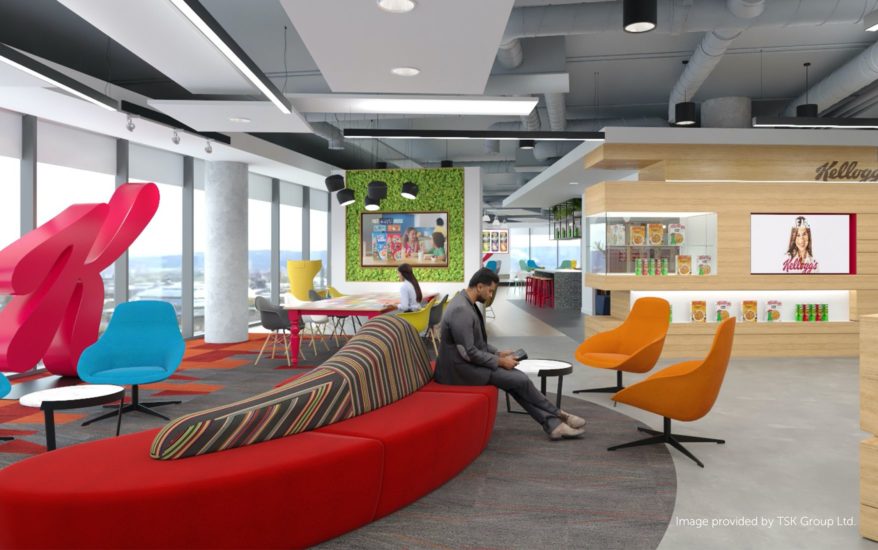
World-famous cereal brand Kellogg’s were looking to modernize its workspaces for its buildings in the UK and Ireland. In doing so, they not only wanted to give their workforce a greater choice of spaces from which to work from, but also enable more flexible, technology-driven ways of working.
These plans looked to have been shaken up by the onset of COVID-19. But, with the help of office design specialists TSK Group and Condeco, they were able to smoothly adapt to changes and forge ahead with their plans. This case study tells their story.
Progressing with flexibility
Before the pandemic hit, TSK had worked with Kellogg’s to create a new UK headquarters within MediaCity at Salford Quays in Greater Manchester. The old Kellogg’s office layout was old-fashioned and was increasingly unsuited to modern ways of working.
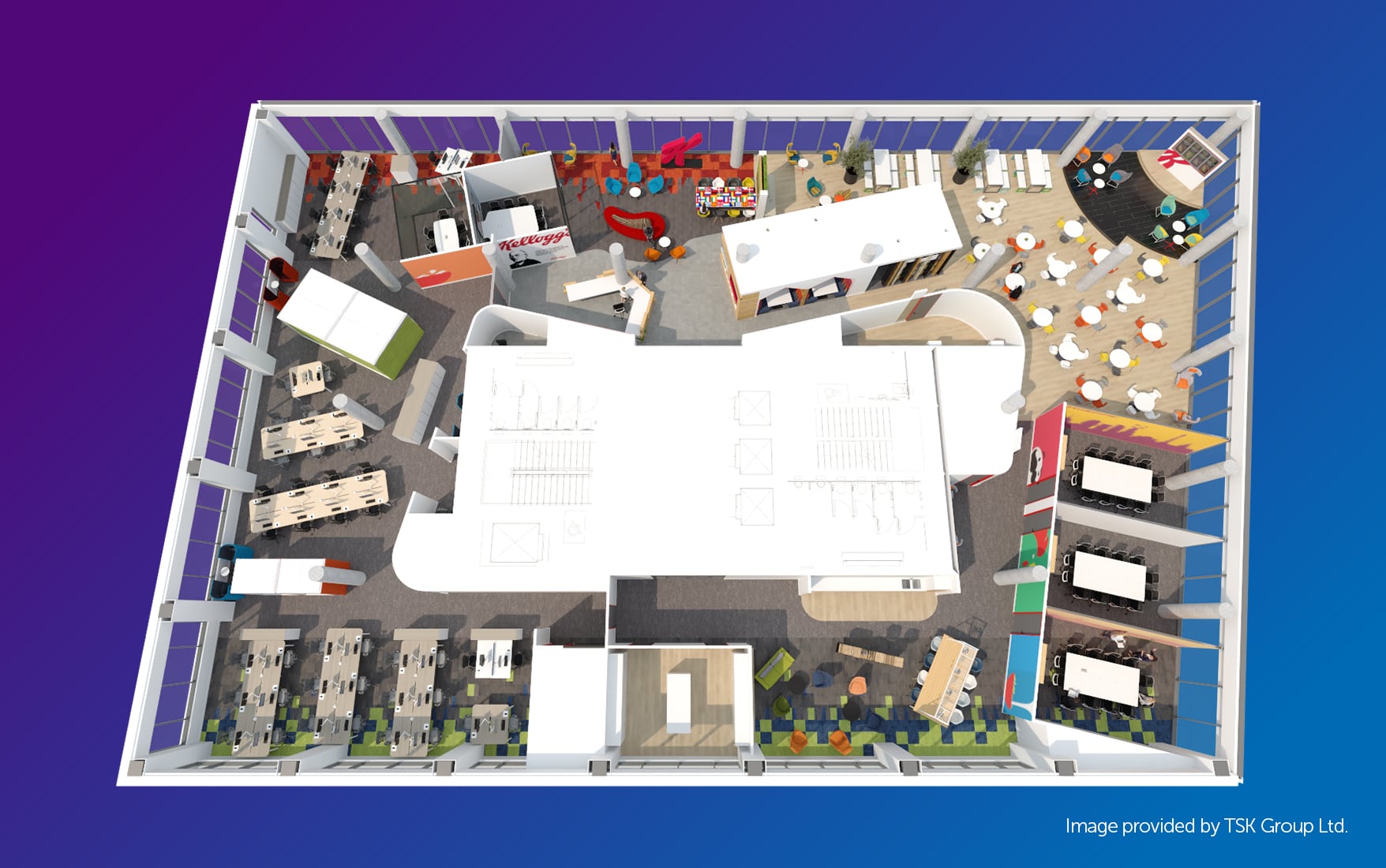
The new office contains:
- Flexible meeting rooms which can be combined to create a larger area for conferencing.
- Open-plan desks for more informal collaboration.
- A variety of individual workspaces to maximize choice for employees.
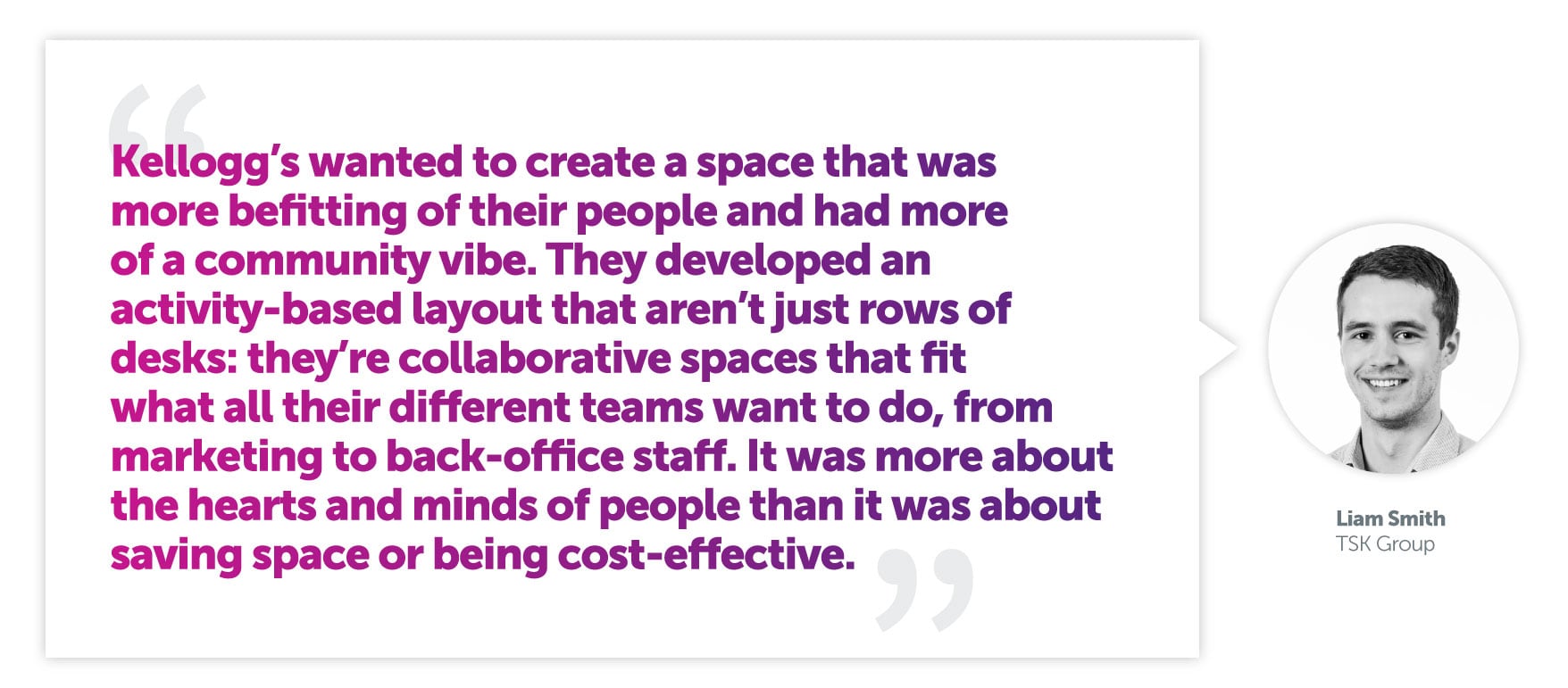
The end result was an office space which met employee needs much better, despite being 40% smaller than the environment it replaced.
Planning past the pandemic
At the start of 2020, Kellogg’s was planning another new office with a similar philosophy, this time the European headquarters on the outskirts of Dublin. The office is sited deliberately close to Dublin’s well-connected international airport, so that the office could act as a ‘hub’ for meetings, training and other events involving employees and clients from all over Europe.
At first, it seemed as if these plans might be derailed by the onset of the pandemic. This delayed TSK Group’s completion of the work on the Dublin office, but it was eventually completed and ready for use by the autumn of 2020. However, far from COVID-19 resulting in a major rethink of the office, Kellogg’s decided to forge ahead with TSK Group’s initial plans, as they were well-suited to the concept of hybrid working anyway.
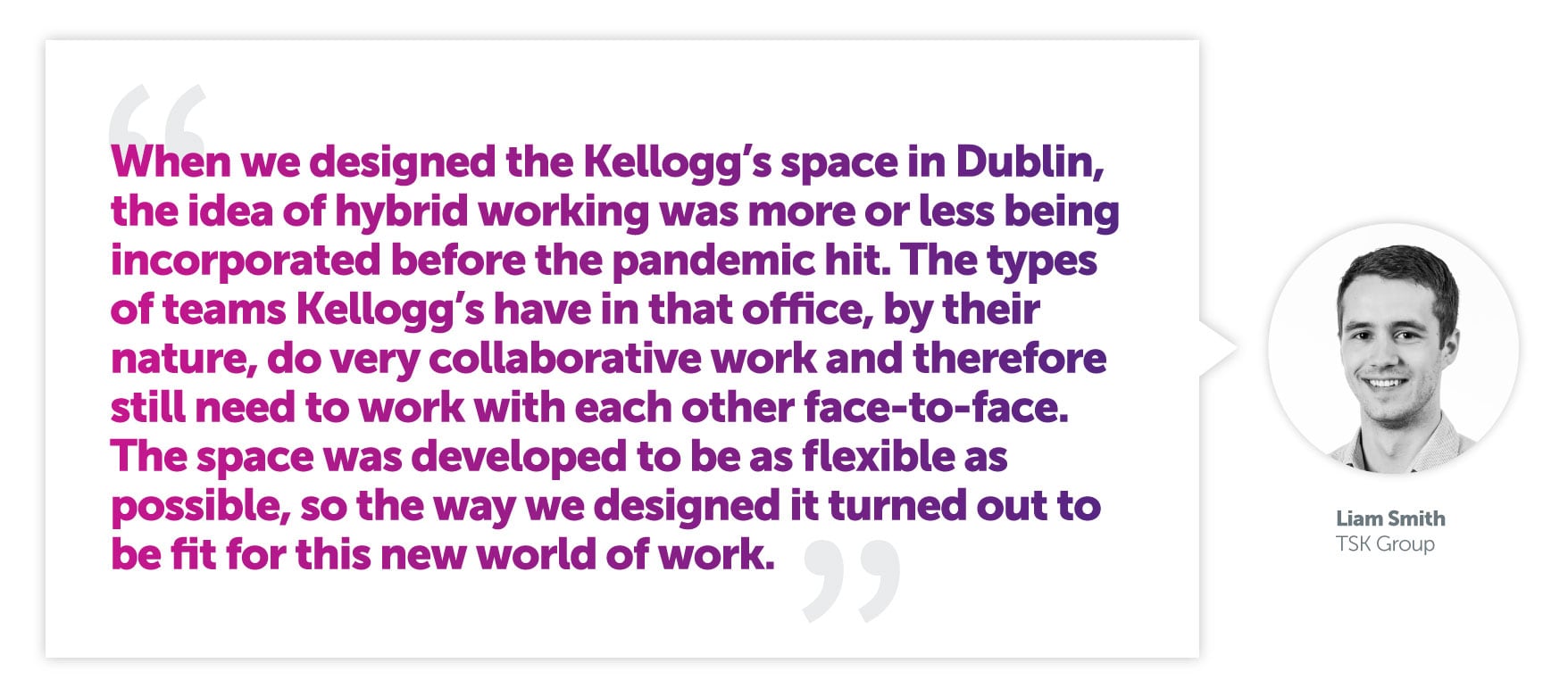
Evolution, not revolution
Looking ahead to the post-pandemic world of work, Smith feels that the scale of the transformation is overstated, and that many of the changes being considered by businesses were in the pipeline anyway: “In this dispersed world where hybrid working is much more commonplace, there are all sorts of different places where people can work. That is the future – but it was going to be the future anyway. It’s just been accelerated by five or ten years.”
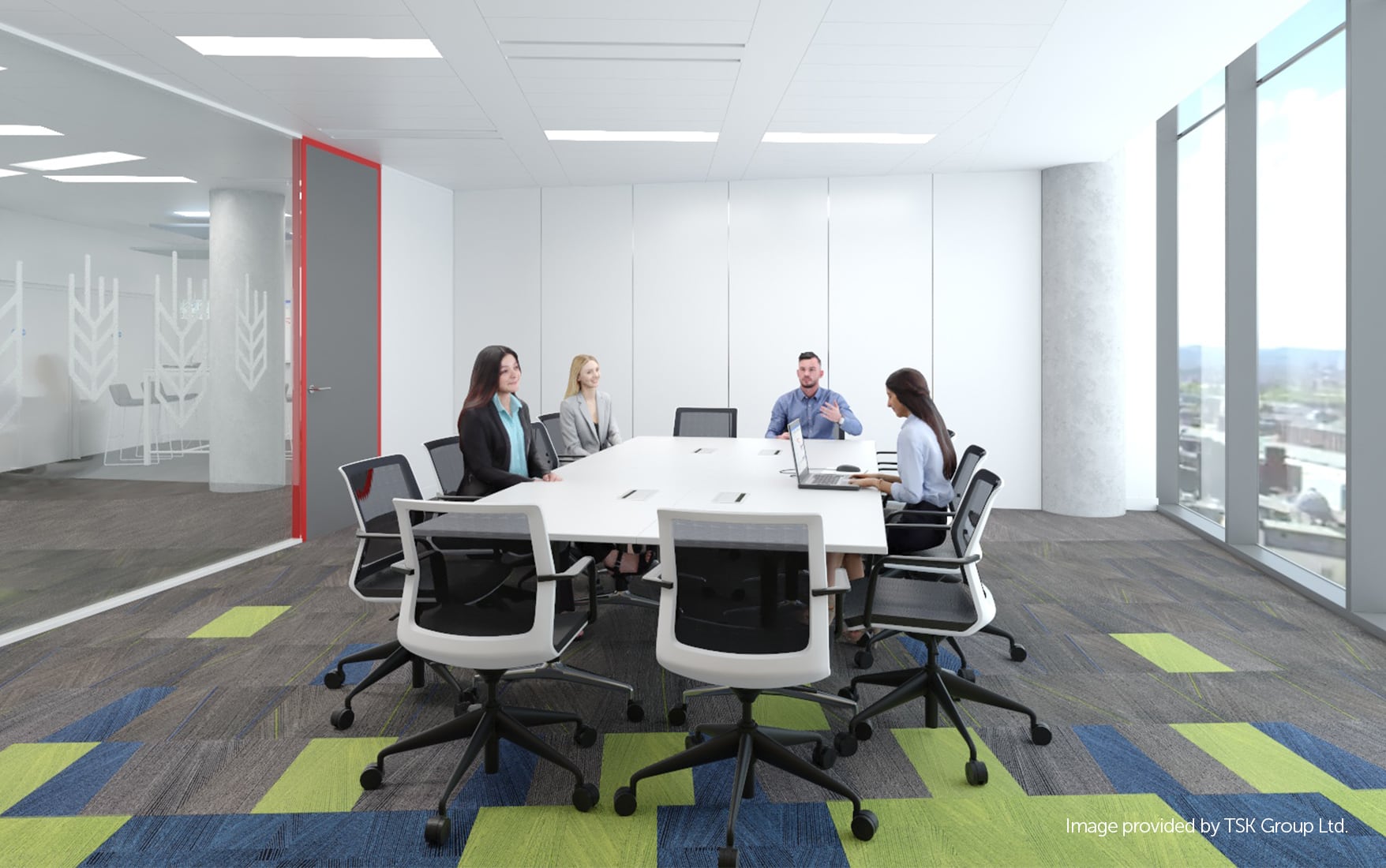
As a result, he suggests the future is one where employers give their workforces as much flexibility as they can, in terms of both office-based working environments and hybrid working models. This is also an area where workspace technology can play a leading role in supporting the evolution of how businesses work.
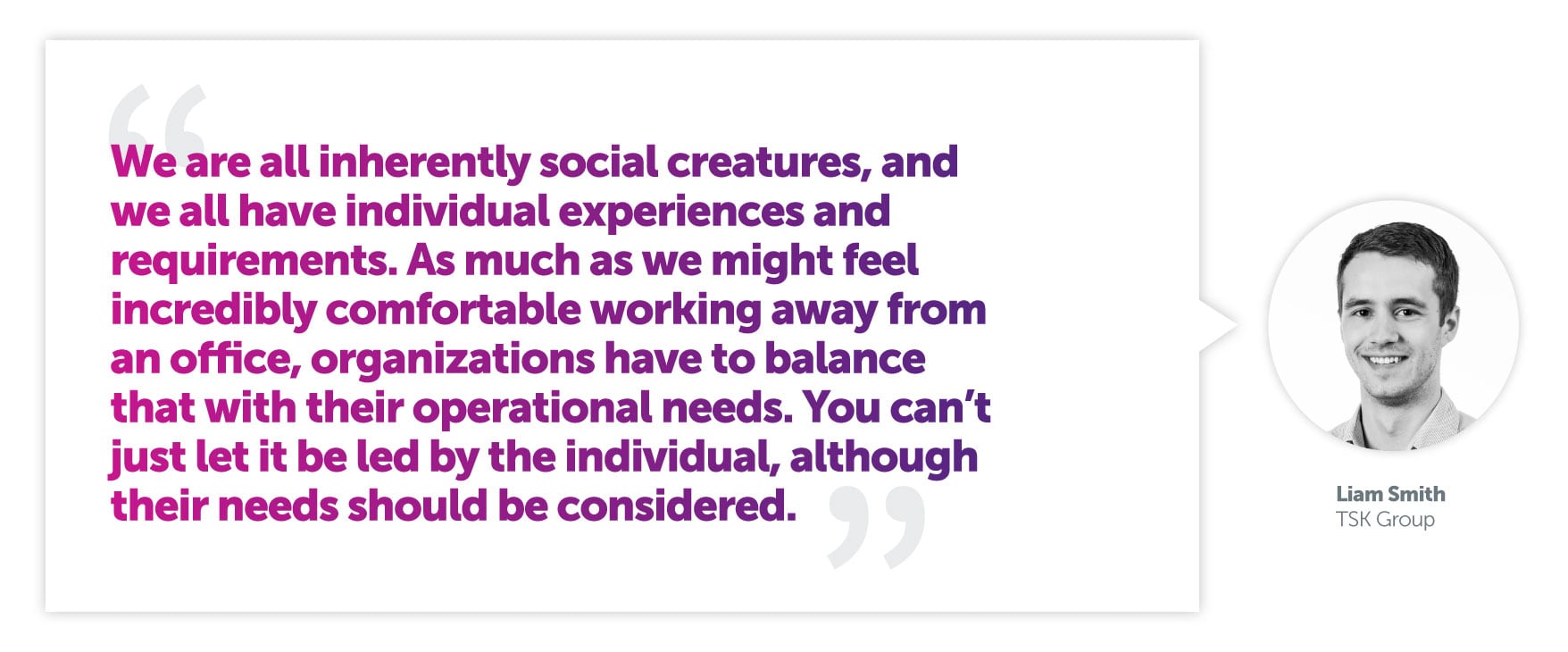
Having the right amount of space and the right balance of work settings and spaces at the office, so you can maintain company culture, social interaction and creativity, is very important. But it’s also important that employees are able to break away into their own spaces to do their process-led work.
The Technology factor
Kellogg’s turned to Condeco as, in its view, the only provider that could implement an integrated desk booking solution within the desired TSK timeframe. Within the desk booking system, employees were able to reserve workstations in the office in advance, for the days and times which they needed them for.
The Condeco solution has helped Kellogg’s put a return-to-work policy into place that has been very well-received by the workforce. As well as inspiring confidence among employees that they can work from offices safely, it has made them feel that they can be productive when they attend, to the extent that the majority of staff have continued to work from the office.
We are proud to have partnered with TSK on this project; and you can find the customer case study here: Kelloggs Case Study
*Images courtesy: TSK Group



